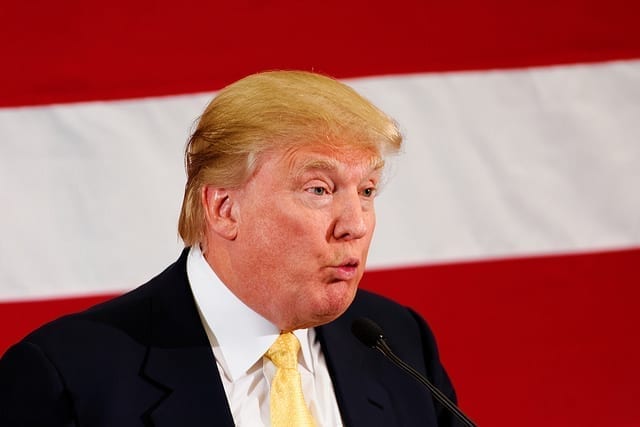Although the court dismissed certain wrongful death claims against Trump, U.S. District Judge Amit Mehta will allow the long-time partner of deceased Capitol Police officer Brian Sicknick to pursue other charges under the D.C. Survival Act.
A federal judge had dismissed part of a lawsuit filed against former President Donald Trump by the long-time partner of Brian Sicknick, a Capitol Police officer who died a day after responding to the January 6 riots in Washington, D.C.
According to The Hill, the lawsuit was filed on behalf of Sandra Garza last year. In it, she claims that Trump—along with rioters Julian Khater and George Tanios—is “directly and vicariously liable” for Sicknick’s death. Garza is seeking an estimated $30 million in damages from Trump and his co-defendants.
However, on Tuesday, a federal judge found that Garza has failed to demonstrate that she has the “statutory standing” to file a wrongful death lawsuit.
“Her contention that a ‘domestic partnership’ was established simply by Officer Sicknick having identified Garza as his ‘domestic partner’ in his will finds no basis in the plain text of the statute,” U.S. District Judge Amit Mehta wrote in his ruling. “Garza therefore cannot recover the damages she personally seeks under the Act.”

“The Wrongful Death Act claim therefore is dismissed,” Mehta wrote, dismissing two counts of negligence against Trump but allowing claims under Washington, D.C.’s Survival Act to proceed. The Survival Act, notes The Hill, allows a “legal representative” of the deceased to file a claim on their estate’s behalf in the event that their death can be attributed to an act of negligence.
Sicknick, adds The Hill, suffered two strokes and died “of natural causes” the day after he was called to defend the Capitol in 2021.
Mehta also upheld claims against Khater, who used a can of bear spray retrieved from Tanios’s backpack to spray a line of Capitol Police officers, including Sicknick.
The court, Mehta wrote, does not need to “decide whether Garza has plausibly alleged that Khater caused Officer Sicknick’s death,” because, “at a minimum, Officer Sicknick’s estate can recover for any pain and suffering that he experienced before his death, and the complaint sufficiently pleads that Khater’s actions caused such harm.”
Although the ruling could dismantle a significant portion of Garza’s claim, Garza and the Sicknick estate may continue pressing to hold Trump liable for his alleged incitement of the Capitol riots—liability that Trump has largely tried to escape by asserting an entitlement to “presidential immunity.”
However, in several other January 6-related cases, federal judges have rejected Trump’s argument, finding that the speech of a sitting president is not necessarily protected by, or reflective of, their duty as chief executive.
“[The president] does not spend every minute of every day exercising official responsibilities,” wrote Chief Judge Sri Srinivasan of U.S. District Court for the District of Columbia. “And when he acts outside the functions of his office, he does not continue to enjoy immunity.”
“When he acts in an unofficial, private capacity, he is subject to civil suits like any private citizen,” Srinivasan wrote in his opinion.
Another federal judge, Tanya Chutkan, also recently rejected Trump’s claims of immunity in a criminal election subversion case.
Sources
Judge rejects Trump’s immunity argument in federal 2020 election case
Officer Sicknick suffered strokes and died of natural causes, DC medical examiner says
Portion of lawsuit against Trump filed by Capitol Police officer’s partner dismissed
Trump doesn’t have presidential immunity from lawsuits over January 6, appeals court rules


Join the conversation!